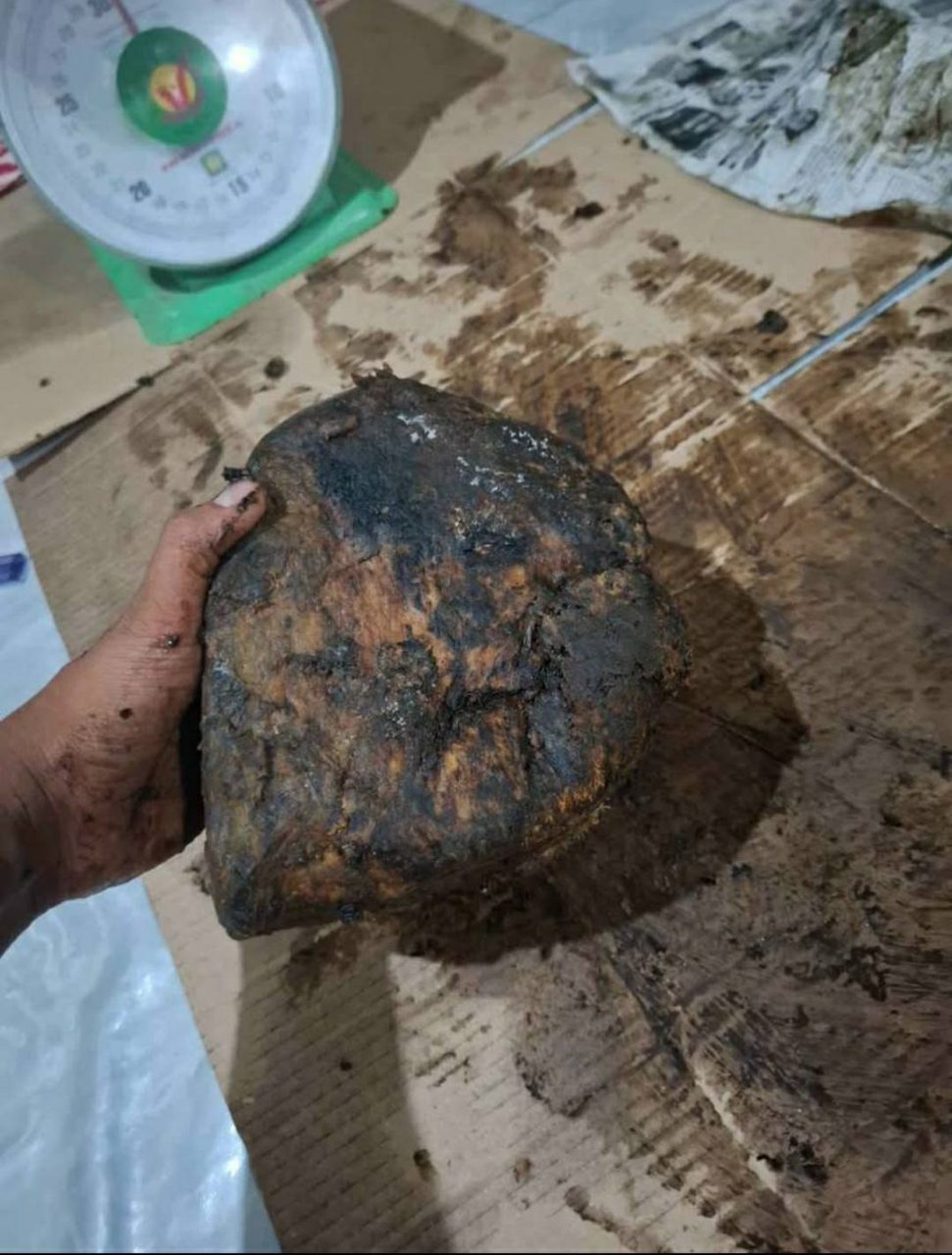Humans will touch filthy things if they think they are valuable. Ambergris passes through the intestines and is expelled as feces, yet people hold it freely with their hands because they think its valuable.
How disgusting is that? If it wasn’t valuable they would easily see they are holding poop and that it was disgusting. But because money is factored in, they lose all sense of what a substance is and interact with it in another way.
Since it would sound disgusting to call it as whale poop, the connoisseurs of fragrance and perfumery have called it as “whale vomit”, a much softer sounding phrase, despite it actually being fecal matter passed through the rectum.
Just as people will hold this lump of poop freely because they think it is valuable, society will likewise respect a low-class man of bad character if they think he is rich.
In India we have a similarly themed aromatic substance called as Kasturi (musk) which is made from the exocrine gland of a deer that excretes liquid to mark territory and attract mates. You would see this same behavior in dogs and cats who spray territory with urine, but in some deer they have a special organ for it.
Since most of these deer have been hunted and killed to near extinction for this organ, natural musk is rare, but it is still “farmed” in Siberia, where special deer are raised and killed for it. To get the excretory organ you have to kill them, there is no pretty way to acquire it.
The smell of original musk (Kasturi) has been described by some modern perfumers as smelling like an old rug covered in cat pee. In fact, in the synthetic and nature similar versions of musk created in laboratories they have specifically removed fecal scents to make it more palatable.
So the question arises, how are we to understood that in the sacred scriptures the use of kasturi by the gopis is described?
There are at least two plants also named kasturi, but I won’t argue here that its not the deer being referenced.
There are too many variables to know how everything was done 5,000 or 10,000 years ago. We don’t know for sure if thousands of years ago kasturi could have been collected from deers that died naturally. Hunters of course collected it after killing deers, but we don’t know to what extent that type of fragrance would have been acceptable in temples 5,000 or 10,000 years ago. Its all a speculative hypothesis. We do have the story in the Mahabharata of the butcher who didn’t kill any animals but only sold meat from naturally dying animals. So there are many possibilities.
In situations like this, where something ambiguous does not align with my personal morality (from what I have learned in scriptures to the best of my ability), I won’t participate in using it because things are not crystal clear as to how things were sourced in the past in perfect times.
There are many equally important fragrances which can be obtained without causing death to animals, such as chandana, aguru, and kesara, that I see no need to start killing deer to make things “smell better”.
In researching it, I did find it interesting how the scent is actually repulsive to most people unless it is refined.
This topic is somewhat similar to leather used to make mridangas. 5,000 years ago they had different methods to acquire that leather, but today butchers are killing cows and then selling the leather for making mridangas. Its not the ideal way, and certainly not what was suggested in the scriptures even if the end result is the same.

Every cow and calf at our sanctuary has a story of rescue, healing, and hope. Your generous support provides them with food, shelter, medical care, and a lifetime of protection. Together, we can give these sacred animals the love and safety they deserve.






0 Comments